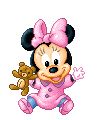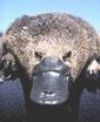|
ESL Forum:
Techniques and methods
in Language Teaching
Games, activities
and teaching ideas
Grammar and
Linguistics
Teaching material
Concerning
worksheets
Concerning
powerpoints
Concerning online
exercises
Make suggestions,
report errors
Ask for help
Message board
|
ESL forum >
Ask for help > Dear teachers,
Dear teachers,
|

Maja O.

|
Dear teachers,
|
|
Hi, I need help with "much" and "many". I was always taught that we can use them in all kinds of sentences but recently I �ve found that some books say that we can �t use them in positives so... Is it a mistake when I say " There are many interesting shops" ? |
2 Mar 2015
|
|
|
|

MJ_Misa

|
|
Hu, we use "many" with countable nouns (many oranges, many books...) and "much" with uncountable nouns (much money, too much salt...) Because "shops" are countable, your sentence is perfectly right. ;-) |
2 Mar 2015
|
|
|

Istruka

|
|
No, it �s not. And you can also use much in a positive sentence like "This tea has too much sugar in it." |
2 Mar 2015
|
|
|

pyramids

|
|
it is not. the mistake is when you spend all your money in these shops.... just kidding.. |
2 Mar 2015
|
|
|

Maja O.

|
|
Thanks for all the answers. I knew the usage according countables and uncountales but I was confused about affirmatives. Thank you :) |
2 Mar 2015
|
|
|

Greek Professor

|
|
It �s important to understand the difference betweennoncount and count nouns when using many and much. Noncount nouns are often used to describe large categories while count nouns are usually more specific. Examples: - There is a car in the street. (singular count noun)
- Question: How many cars are in the street?
- Answer: There are a few cars in the street (plural count noun)
- Question: How much traffic is there?
- Answer: There is a lot of traffic. (noncount noun)
Noncount nouns always use a singular verb. Count nouns are singular or plural. Much and Many are usually used with the negative: Examples: - There aren �t many students in the classroom. (perhaps 4 or 5 students)
- There isn �t much food in the refrigerator. ( a small amount of food)
Much and Many are usually not used in the affirmative: Examples: - There are many apples in the basket. It sounds better to say...
- There are a lot of apples in the basket.
- There is much milk in the refrigerator. It sounds better to say...
- There is a lot of milk in the refrigerator.
In formal written English: - It is also possible (and preferable) to use many and much rather than a lot of, lots of and a lot in formal written English.
Example:
There are many students.
Much time was spent on studying.
So if you �re speaking or writing to friends (informal), use a lot, a lot of, lots of. But if you want to be more formal, perhaps it is preferable to use much and many.
|
2 Mar 2015
|
|
|

dackala

|
|
In one book that I have it �s written that you can use many in affirmative informal situations. Much is for formal written English. So I think that it �s better to ask a native speaker maybe? I think that I �ve heard in films many in affirmative forms. However, someone posted too much , well that � something different. Too is an intensifier , and of course we can use too much, too many and so on. As it �s used before adjectives and adverbs ( too fast, too slow, too much) , it has different purpose here. |
2 Mar 2015
|
|
|
|
|